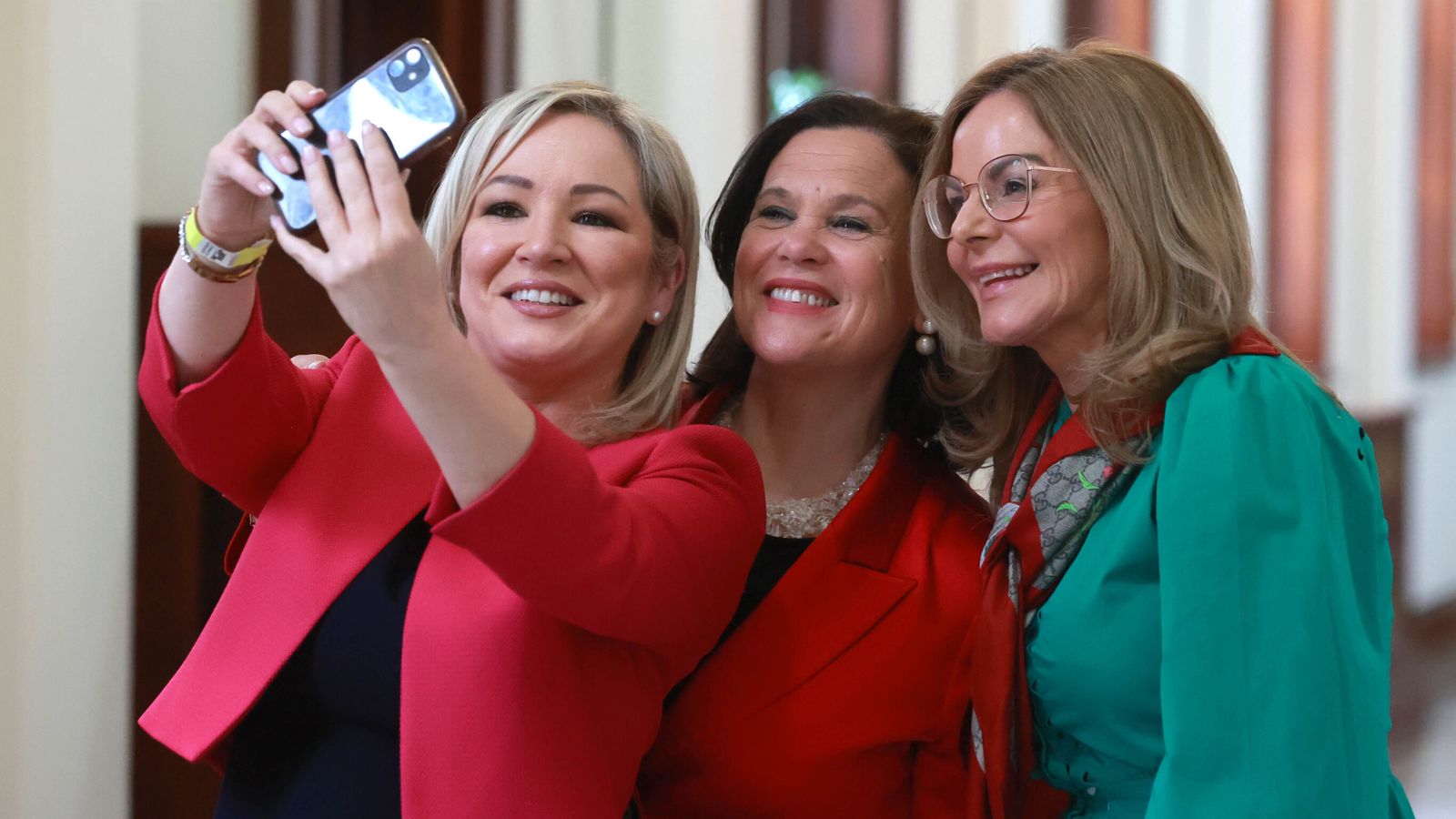The name Sinn Fein means “ourselves alone” – reflecting their aspiration for the entire island of Ireland to be independent – but the party has no shortage of company at the polls.
One year after it became the largest party in the Stormont Assembly, Sinn Fein has become the largest party in local government too – a seismic shift in Northern Irish politics.
Nationalists turned out in force, endorsing Sinn Fein deputy leader Michelle O’Neill’s claim on the office of first minister, from which she’s been blocked by the DUP’s boycott of powers-sharing.
The turnout in Unionist constituencies was lower, as usual, despite DUP leader Sir Jeffrey Donaldson MP urging voters to strengthen his hand in demands for change to post-Brexit trading arrangements.
The DUP says the Windsor Framework – Prime Minister Rishi Sunak’s new trade deal with the EU – does not safeguard Northern Ireland’s place in the UK enough for them to restore devolved government.
Losing its lead over Sinn Fein for the second time in 13 months is a blow to the DUP, but there’s no guarantee this result will change its stance on power-sharing.
It’s more a case of Sinn Fein gaining than the DUP losing – the Unionist party held on in most places, despite many predicting a meltdown for them in these council elections.
Read more:
Northern Ireland secretary: Stormont will be up and running by end of year
Northern Ireland needs ‘more confidence’
Be the first to get Breaking News
Install the Sky News app for free
The ideological wing of the party will regard that as a mandate for their hard-line position on the Brexit border in the Irish Sea and want to maintain the boycott.
But the pragmatists can point to evidence of an electorate disillusioned by binary politics – the fact the non-aligned Alliance Party is growing as a third force in politics here.
With fewer voters now designated as Unionists or Nationalists, it’s difficult for the two largest parties to fight every election on the constitutional question of United Kingdom or united Ireland.






